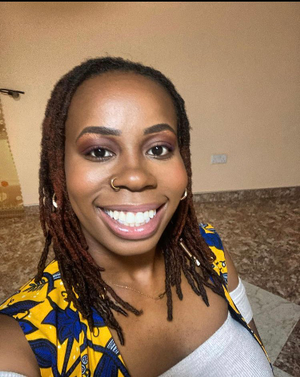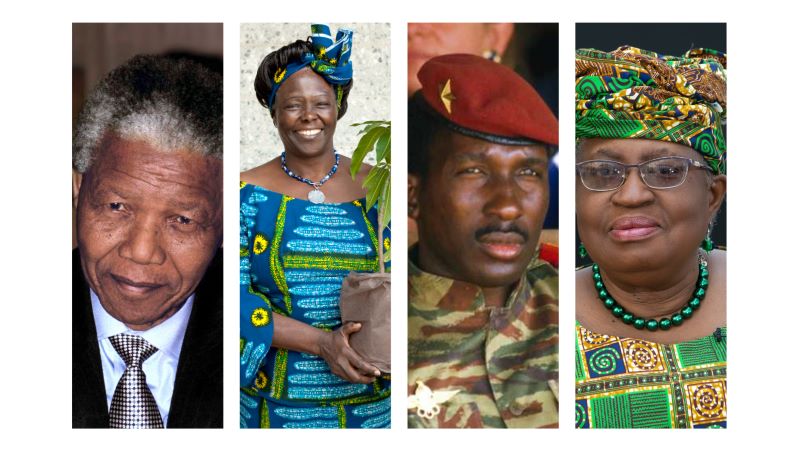The compounding issues of racism and mental health create a deadly concoction in the United States. Although Black people represent less than 13% of the American population, they are 3.3 times more likely to be killed by the police than White people. In addition to this disparity, a Washington Post study discovered that in the past six years, 30% of people killed by the US police suffered from a mental health disability.
Philadelphia, “The City of Brotherly Love”, continues to grapple with racism and mental health-related policing. In early October 2020, the Philadelphia Police Department (PPD) announced a clinically trained behavioral health specialist would listen in on 911 calls to discern whether a person having an emergency is in need of mental health services. Francis Healy, the Special Advisor to Commissioner Danielle Outlaw, told PBS the goal was to send a mental health specialist with a police officer for emergencies by the end of 2020.
Still, on October 25th, 2020, Walter Wallace, a Black man who was having a mental health episode and holding a knife, was shot down and killed by two Philadelphia police officers. Ironically, these officers, Thomas Munz and Sean Matazarro, were two of four who came under fire a few months before for improperly responding to a call about an autistic man with a gun.
In response to the Walter Wallace tragedy, the city of Philadelphia displayed outward cries of anger and frustration. In the aftermath, the PPD vowed to incorporate mental health services into dispatch procedures, but progress has been delayed. On February 27th, 2021, the PPD launched a new two-week behavioral health training program. As of April 5th, 2021, Billy Penn at WHYY news reported that four officers were signed up.
The Philadelphia Crisis Intervention Team (CIT) is a collaborative effort between the Philadelphia Police Department, Department of Behavioral Health and Intellectual Disability Services (DBHIDS), Mental Health Partnerships, the Police Advisory Commission, Project H.O.M.E., the Family Training and Advocacy Center, and the University of Philadelphia. When a person in Philadelphia calls 911 for an emergency, they can request for a CIT officer to be dispatched to the scene. Last year, PBS stated that almost half of police officers have completed CIT training. The training aims to promote understanding and empathy and increase effective communication with vulnerable citizens in need. However, the continuous killing of Black Philadelphians with mental health issues continues to negate its effectiveness.

DBHIDS hosts a mental health helpline for Philadelphians to access crisis care, but they do not work closely with the Philadelphia Police Department. If a Philadelphia resident calls the DBHIDS helpline, DBHIDS is able to send a Mobile Crisis Team to the scene, but if there is a threat of danger, the police will have to intervene.
A nationwide crisis care initiative, integrative of mental health organizations, regional law enforcement like the PPD, community policing organizations, and other stakeholders across the US may help lower the number of Black people with mental health disabilities being killed by police.
The issue of policing people with mental health issues is global. In 2014, the United Kingdom Department of Health and Social Care designed the Mental Health Crisis Care Concordat to support citizens who suffer from mental health disabilities. After this Concordat was signed by various stakeholders, including UK police force associations, local UK governments, and UK social service organizations, Crisis Team UK was assembled. Currently, 27 national bodies in the UK have signed the Concordat.
Crisis Team UK is a coalition of psychiatrists, social workers, mental health nurses, and support workers who stand on call for mental health-related crises. Although different regions have varying methods of crisis care, the Concordat and stakeholders have declared the state to be working with a common motivation: to provide adequate mental health resources for at-risk citizens. The Concordat aims to ensure signing bodies are working to provide communities with access to adequate crisis support, including prevention, response, intervention, and recovery.
Access to adequate healthcare insurance prevents many Americans from obtaining mental health treatment. This is a stark difference to the UK. All UK citizens have free health insurance through the National Health Service (NHS). Rachel of the Customer Contact Centre at the National Health Service (NHS England) tells FunTimes via email that NHS England provides communities with resources by commissioning or buying health, justice, military services, and specialized services. Due to COVID-19 related emergencies, NHS UK was not available to respond to further inquiries for this project.
So, how does crisis care work in the UK? In the event of a mental health emergency, the NHS England website directs community members to access crisis care resources by dialing 999 for emergencies, going to their local Accidents and Emergencies (A&E) Department, calling their local crisis team, or contacting available helplines. In their respective localities, crisis teams offer a variety of services, including visiting members in their homes, hosting a crisis house or day center, helping plan future crisis care, offering self-help strategies, visiting community members in the hospital, administering medication, and providing resources such as housing, finances, or childcare arrangements.
In 2015, the Care Quality Commission (CQC), one of the organizations that signed the Crisis Care Concordat, engaged the Race Equality Foundation to investigate the effectiveness of crisis care on Black and minority ethnic UK communities. Through interviewing 70 people, the Race Equality Foundation found that although there are some aspects to be improved, such as delayed treatment, lack of empathy, and inadequate treatment, some interviewees expressed positive experiences, and one said the existence of these programs had saved their life.
A man in the Azuka Housing Scheme provided by the Northampton Crisis Care initiative said that if not for the Azuka housing scheme, he would have died on the streets. Other participants of the Azuka housing program reported that the housing program had a transformative effect on their mental health.
A Black Sandwell resident stated that her son, who has mental health issues, was repeatedly arrested because he is Black.
James, a Londoner of color with mental health issues, stated that if not for the Crisis Care initiative he may have been dead. He spent his time on the streets due to issues with his mental health, and through the CQC he was able to find stable housing.
In explaining race realities in UK policing, Charles Anyigbo, a London based British-Nigerian political analyst, tells FunTimes:
“Unfortunately, racism in the UK police force is a conscious or unconscious exercise of double power. One is the sense of the ‘White Power’, and the other is ‘Authority Power’, which can be visualized as the man with the gun and handcuffs. Racism is often homegrown and tutored during childhood by parents. History, government policies for the self-preservation of indigenous people, fear, and arrogance promote racism.”
 (Cynthia Pore’e)
(Cynthia Pore’e)
Cynthia Pore’e, a Delaware, US based Clinical Psychologist, informs FunTimes: “It is important to be aware of one’s attitudes and implicit biases—the biases that lay dormant and deep in our system and our bodies that we were raised in through our households. When your great grandfather owned slaves and witnessed the hanging of Black people and that legacy is passed down, there is still that undertone. These are implicit biases that people come with and police officers and other professionals are no different.”

The Race Equality Foundation is a part of a coalition of UK racial justice organizations known as the Coalition of Race Equality Organizations (CORE). Another organization in this coalition is the Greater Manchester-based group, the Caribbean and Mental Health Network (CAHN). Charles Kweku-Odoi, the Community Liaison at CAHN, shares insight on the realities of Black people with mental health issues in the UK, as well as reform efforts and their success.
Kweku-Odoi says there is still progress to be made: “In areas where it’s been co-designed, or the initiatives are led by people from the Black community, the outcomes are better and the services are inclusive for Black communities. In other areas, there isn’t that co-design happening. Loads have been done in London because it’s the most diverse, being the capital, although regions outside London are also diverse. There are also issues where Black people are overmedicated or criminalized. Issues are mostly with young Black men.”
 (CAHN staff and community member at recent event)
(CAHN staff and community member at recent event)
Kweku-Odoi also notes that Black UK leadership representation in legislative and medical systems may prove helpful to at-risk Black communities. “Black people in senior leadership in the medical or health sector are progressive in the US. This is not the case for the UK.”
His advice for countries like the United States to streamline mental health services into policing is to work closely with affected communities of operation. “Lived experience is very important, and what CAHN advocates for is cultural and religious sensitivities, including being bold and doing something creative. It is important that there is some co-ownership with those communities.”
In 2018, the South East London division of NHS introduced a pilot program, named ‘The London Ambulance Service’, that entails a mental health nurse and a paramedic voyaging together to respond to mental health crises. When people in the area call 999 for a mental health emergency, a mental health nurse speaks to the caller and decides if they should send the mental health dispatch. When the mental health ambulance arrives at the patient in need, the mental health nurse provides a psychological intervention, and the paramedic resolves the patient’s physical needs. Due to COVID-related issues, the South East London division of NHS was unable to interview for this project.
 (Arnett Woodall wins 2019 Activist of the Year)
(Arnett Woodall wins 2019 Activist of the Year)
In cities like Philadelphia, activists are working hard to pick up the slack to police underserved communities. One of them is Arnett Woodall, a community activist who has been making positive impacts in Philadelphia for over 15 years through his businesses, West Phillie Produce, A&W Community Solutions Inc. Consultant, and The Upper Room Space. Through Woodall’s organizing, he has been able to develop an immersive community policing program and establish a firm reputation with the community.
He describes the aftermath of the Walter Wallace shooting:
“When I first heard about the shooting, I was at my store, which is about 2 blocks away. When I went there I saw 14 bullet cases on the streets. This was a textbook case of excessive force. It shows the lack of adequate education of police officers that work in our communities that are supposed to be serving and protecting in our communities. They are trained to shoot and kill.”
Woodall recalls his community policing program in action during the Walter Wallace riots: “When the riots happened, the whole city was shut down. I was the only store open for two days. When they were burning down the city, we were outside barbequing. Our members, including Red, Black, and Green Peacekeepers (RBG Peacekeepers) protected Black communities and businesses like Hakim’s Bookstore. If the African American Chamber of Commerce for Philadelphia would invest in this program, we could go far.”
CAHOOTS in Eugene, Oregon is a crisis intervention program that is notable for having successfully launched a mental health ambulance program that works alongside 911, but without a proper national push, it is difficult to discern if more cities will undertake the job of mimicking this initiative.
Like Kwaku-Odoi, Woodall advocates for community members to be intimately involved with police reform processes. Woodall also acknowledges the legislative factors to consider and the difficulties of working towards a long-term vision with temporary legislators: “These conversations need to go to Harrisburg, PA. When you work in the community over decades, you work with a lot of politics. When a new mayor comes in I have to start my process all over.”
This article has been made possible by the Solutions Journalism Network.


Nana Ama Addo is a writer, multimedia strategist, film director and storytelling artist. She graduated with a BA in Africana Studies from the College of Wooster, and has studied at the University of Ghana and Kwame Nkrumah University of Science and Technology. Nana Ama tells stories of entrepreneurship and Ghana repatriation at her brand, Asiedua’s Imprint ( www.asieduasimprint.blog ).





